Double Glazing Installation Cost
Last updated 10th June, 2025
Fancy some double glazed windows?
This article covers all the main points about the cost of double glazed new or replacement windows. We'll break down typical double glazed windows prices, from the supply costs to the installation fees.
The average cost of double glazing for a whole property is typically around £4000 to £5000, assuming an average semi-detached house with eight windows and two doors.
Let's look into it!
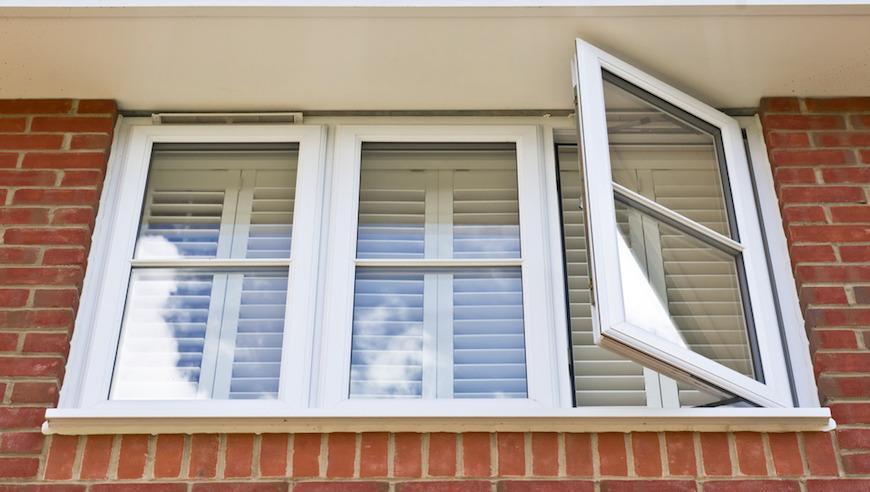
Table of Contents
- How much is double glazing installation in 2025?
- Double glazed windows cost examples
- Labour cost to double glaze a house
- Double glazed windows material costs
- Additional double glazing installation costs
- What does installing double glazing involve?
- Benefits of new double glazing
- The replacement window industry in the UK
- Double glazing for sash and bay windows
- Alternatives to double glazing
- Premium options for double glazing
- What can go wrong with double glazing?
- Dealing with condensation
- Double glazing on listed buildings
- Double glazing building regulations
- Double glazing industry accreditations
- FAQs
- Sources
How Much is Double Glazing Installation in 2025?
The average double glazing cost is between £4,000 to £5,000 but this can vary depending on location, current window type, the amount of windows, quality of glass, type of window locks, and any scaffolding or labour costs involved.
Remember that double glazing quotes do not normally include any special or unusual requirements unless specifically stated.
Features such as coloured uPVC Frames, "A" Energy Rated Windows that are more efficient at retaining heat, lead framed glass, triple locking security mechanisms, and triple glazed windows – all add cost to any installation. If your home is higher than 2 stories you should also expect a higher overall double glazing cost.
Double Glazed Windows Cost Examples
Below are some estimated costs of installing double glazing windows, including larger sized properties:
| Number of Windows | Avg. Cost | Duration |
|---|---|---|
| 8 windows with 2 uPVC doors | £4000 - £5000 | 2-3 days |
| 15 windows with 2 uPVC doors | £6000 - £7000 | 3-4 days |
| 20 windows with 2 uPVC doors | £7000 - £8000 | 4-5 days |
Labour Cost to Double Glaze a House
Most window fitters work in pairs and charge around £300 per day in total for labour. On average a pair of skilled window installers are able to install up to 6 windows a day depending on the ease of access.
If you are only having a single, small window installed on a ground floor its likely this will be done by 1 fitter and should take no longer than 2 hours.
All types of windows will be more expensive if they are above two storeys in height or if access is difficult due to a conservatory or public footpath underneath. Traditional casement style windows are also much cheaper than sash type windows no matter which frame material is used.
Double Glazing Cost Breakdown Calculator
Individual costs for installing 8 double glazed windows and 2 uPVC doors for a semi-detached home - Total Cost: £4000
Materials
£3000
Tradesmen
£1000
Waste Removal
£0
Double Glazed Windows Material Costs
Below we have given an indication of the individual costs of replacing a window dependent on the material chosen for the frames:
| Window Frame Type | Casement | Sash |
|---|---|---|
| uPVC | £250-£400 | £750 |
| Wood | £400-1000 | £750-£1500 |
| Aluminium | £350-£600 | £1000+ |
Here we take a look at each of the above window frame options for double glazed windows and their pros and cons.
uPVC Double Glazing
uPVC Windows are by far the most common type of double glazing windows and typically will cost around £250 to £400 per window. White uPVC is more common and therefore cheaper than brown or woodgrain textured uPVC.
Pros
- ✔ Most affordable option
- ✔ Relatively low maintenance
- ✔ Widely available and easy to source
Cons
- ✖ Not as durable as other options
- ✖ Less colour choice without higher cost
- ✖ Repairwork is limited
Aluminium Double Glazing
Pricing for aluminium style double glazing starts from around £400 due to the frames being more expensive. Aluminium windows are becoming increasingly popular due to their sleek and modern appearance.
Pros
- ✔ Strong, durable and long-lasting
- ✔ Resistant to warping and corrosion
- ✔ Requires very little maintenance
Cons
- ✖ More expensive than traditional uPVC
- ✖ Less insulation on low-end models
- ✖ Limited colour and design options
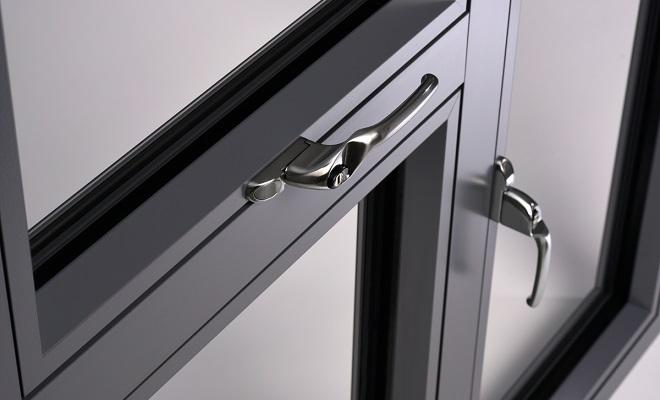
Wooden Double Glazing
Wooden double glazed windows are much more expensive, though prices can start from around £400, the cost can also range to well over £1,000 for some hardwood varieties. However, they also offer an attractive, traditional appearance.
Pros
- ✔ Long-lifespan if maintained correctly
- ✔ Can be repaired rather than replaced if damaged
- ✔ Provide strong insulation properties
Cons
- ✖ Expensive compared to alternatives
- ✖ Require regular maintenance (painting/sealing)
- ✖ Vulnerable to rot if neglected
Additional Double Glazing Installation Costs
Whilst you're getting double glazing installed you might want to consider installing a velux window in your loft or even a skylight on a flat roof.
Either way, it is likely you will need to consider scaffolding costs when replacing windows, especially on upper floors or those that are hard to reach. This should already be covered in any quote you receive, but worth checking before going ahead.
It's also common that after a window installation, that you require a plasterer to restore any damaged plaster or rendering. You may also need a painter and decorator, all of which adds to the overall cost of the project.
This could also be an ideal time for any reconfiguration of your property, you may want to move an external door for example. Although for any significant work, it's worth spending some money on a structural engineer (approximately £90 per hour to ensure the job is carried out correctly.
What Does Installing Double Glazing Involve?
Double glazed windows are typically in 3 parts, the glass, the frame and the sill. A window fitter will remove your current windows while ensuring that they don't damage the brickwork or damp course.
Double glazed windows have two sheets of glass with a gap in between which creates an insulating barrier to keep the heat in. This gap is sometimes filled with gas which makes the windows even more energy-efficient but will also increase the overall cost.
Once your window and sill are installed safely the installer will complete checks to ensure that everything is sealed and functioning correctly.
During a full house installation a competent window fitter will do a walk through of the home to demonstrate that all windows are sealed, functioning correctly and all ventilation is installed to standard.
Double glazed windows also come in a range of materials, styles and performance rating which is defined by how well they stop heat from escaping through the window. Some windows are also rated by how effectively they block sunlight and reduce noise.
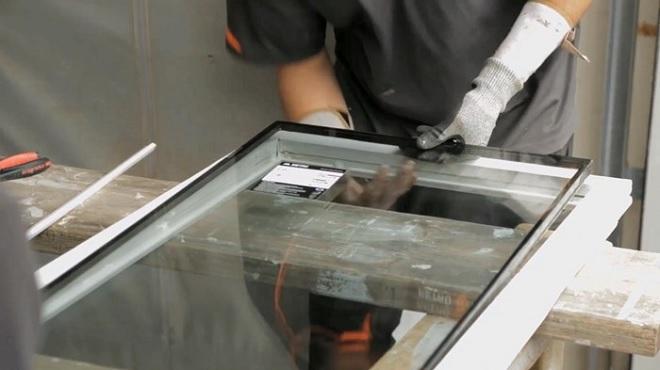
Benefits of New Double Glazing
Below are just some of the benefits when weighing up the cost of installing double glazed windows:
- Reduced energy bills due to improved insulation
- Comfortable home thanks to reduction in heat loss
- Smaller carbon footprint, supporting the environment
- Fewer draughts and cold spots within the property
- Reduced noise levels, so more peace and quiet.
- Less condensation on the inside of windows
- Improved EPC rating, increasing property value
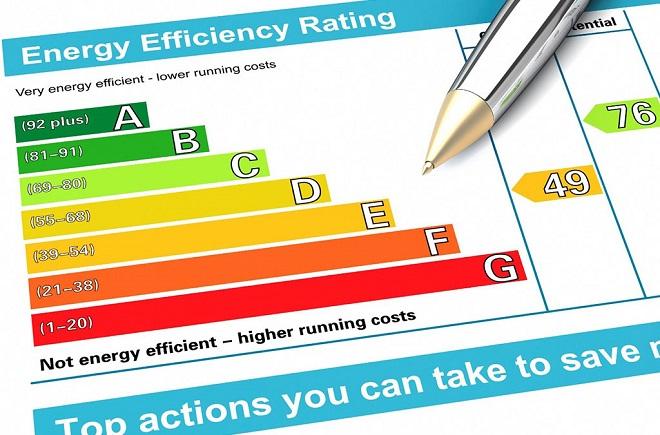
Is Double Glazing an Investment?
The costs and potential savings for double glazing will of course vary for each home and even each window, but when calculating the savings on energy and return on investment, you can expect the double glazing to last for 20 years or more.
Despite the promises made by double glazing salesmen, an investment in double glazing will not pay off in terms of recouping the money spent in energy bill savings for many years, decades even! But double glazing does offer a much more comfortable and secure home, plus it will make it much easier to sell in the future.
The Replacement Window Industry In The UK
The double glazing window industry in the UK has a terrible reputation, particularly for aggressive sales tactics and cold calling. Many double glazing companies will use high pressure sales tactics involving a very long visit to your property lasting several hours.
The most common high pressure closing tactic is to initially offer a very high price but then offer a huge discount for any number of invented reasons, but always involving you agreeing to sign the sales contract right there and then without taking any time to consider it or compare with other quotes.
This dodgy sales tactic often involves the salesman phoning the head office or manager as the "discount" is so amazing he can’t authorise it without permission! It's all complete nonsense of course, starting with a grossly inflated price and then using a false discount to close the deal.
You will in fact get the very same - if not better - deal the next day or the next week, so no need to sign anything straightaway! Ignore all these hard sell tactics and just get quotes and compare with other companies and pick the right window fitter for you. Make it 100% clear you will be comparing with other quotes and not making an instant decision. To try and avoid being ripped off, choose a double glazing company that is a member of a reputable trade body such as Fensa or Certass.
Double Glazing For Sash and Bay Windows
Many UK homes have older, draughty wooden sash windows.
Refurbishing existing sash windows typically costs around £200 per unit, making it more affordable than replacement. By comparison, modern double-glazed wooden sash windows usually cost over £1,000, while uPVC alternatives are priced at about £750.
When deciding whether to replace with double glazing or draught-proof them, consider that draught proofing is a cost-effective way to improve efficiency, especially for sash windows, and may even be grant-eligible.
However, if the wood is rotten and crumbling, then if restoration isn't possible, you're only option is to replace them altogether.
Sash windows are also more prone to draughts than standard casement windows, so if you don't replace with double glazing, creating an air tight seal around the frame of each one can make a huge difference instead, as can the fitting of secondary glazing on the inside.
Bay windows by design are more complex to build and install. This makes them more expensive — expect to pay between £2,000 and £8,000 for a new bay window (including supplies and fittings), depending on size, material, and glazing type.
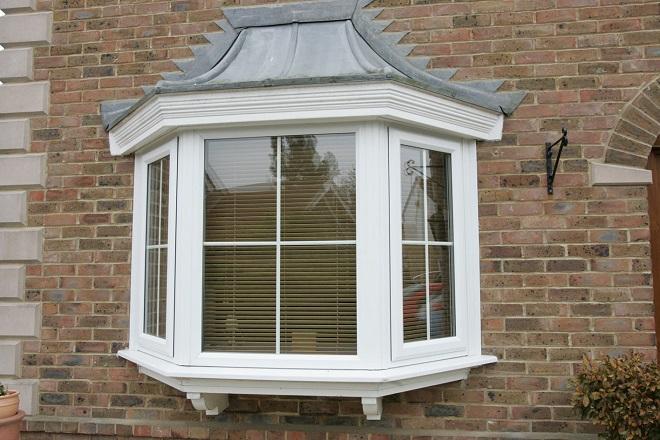
Alternatives to Double Glazing
Double glazing isn't your only option when it comes to replacing your windows. You may decide to go for triple glazing or secondary glazing. Below we have made a comparison against double glazing to help you decide which is the best option for you.
Double vs Triple Glazing
While adding an extra pane of glass into a double glazed window will obviously provide improvements in terms of thermal efficiency and noise reduction, it also brings other implications with it, not least of which is the additional cost.
Modern double glazing performs well for the majority of homes, however with triple glazed windows there are also some additional benefits worth considering:
- Increases the warmth near the window by 1 or 2 degrees
- Overall saving on heating bills are minimal
- Financial benefits unlikely to cover costs in 20 years
- Suitable for areas with extreme fluctuations in temperature
- However, in most homes high-quality double glazing is sufficient
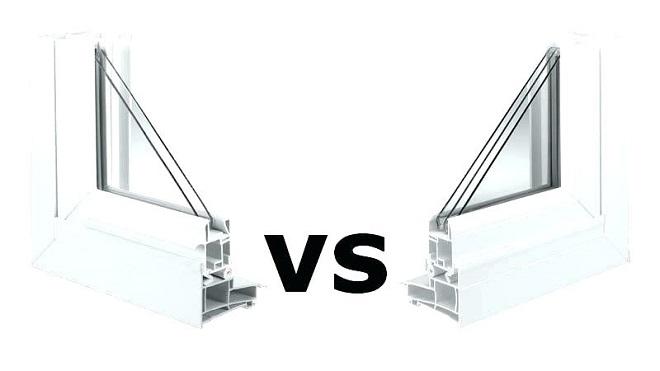
Double vs Secondary Glazing
Double-glazing is much more expensive than secondary glazing as you need entirely new windows fitted, whereas secondary glazing simply adds a second pane inside your existing ones. Further points to note are as follow:
- DIY kits are even cheaper, by installing secondary glazing yourself
- Can help reduce noise due to the bigger gap between glass panes
- However, is less effective at stopping heat from escaping
- Plus some find secondary glazing less attractive than double
- The cost of secondary glazing may pay for itself in just a few years
Premium Options for Double Glazing
If you're looking to maximise the benefits of your double glazed windows, there are some specialised options for the glass panels that bring specific benefits. These are situational and bring with them an additional cost, so be sure to consider the options that suit your room or house preferences:
- Acoustic or noise reduction glass is a great option to keep your room quiet and free from outside annoyance, not to mention reduce UV penetration.
- Toughened, laminated double glazing does pretty well exactly what it says on the sill. Sturdier glass panels with a layer of PVB between help prevent shattering in the event of an impact, with the added benefit of higher UV and noise resistance.
What Can Go Wrong With Double Glazing?
There are a few things that can go wrong when fitting double glazing and it's not recommended as a DIY job and it is important you use competent and experienced fitters. Even the very best quality double glazing can be ruined by a poor quality installation.
Poor installation can cause all sorts of problems, but the most obvious ones initially are condensation problems between the panes, draughts due to the seals around the windows not being correctly installed and leaking during bad weather. Never pay for double glazing installation fully in advance, paying a small deposit is standard practice, but don't part with the balance until the job is completed to your satisfaction.
Dealing With Condensation
There are a few potential reasons for condensation inside double glazed units. Like everything else, even the best quality double-glazed window units will deteriorate over time. Eventually, no matter how well built they are, the seal around the two glass panes will start to degrade and allow moist air to get into the air gap.
This moist air will readily form condensation inside the double-glazed unit which not only reduces the thermal insulation properties of the window, it also looks awful too- from a distance it looks just like a really filthy window that hasn't been washed for months!
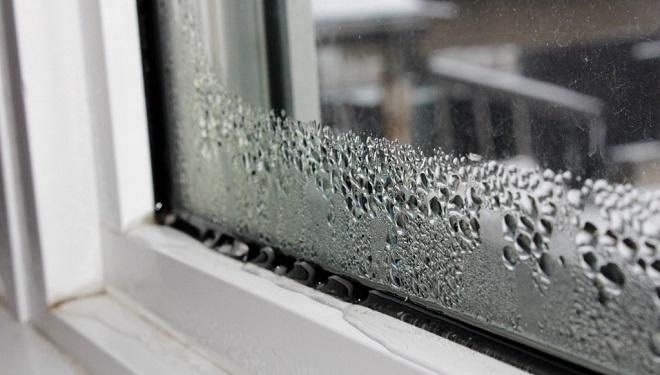
It's not just the sealant around the glass panes that can deteriorate, on older or poor quality windows the uPVC frames themselves can crack and allow moisture inside, but this is much less common. In most cases, the condensation problems can be quite cheaply rectified by simply installing a new double glazed unit into the existing frame. A double glazed unit is a fraction of the cost of a full new window replacement, costing from around just £50 up to £150 for a large window.
Double Glazing on Listed Buildings
If your house is listed or in a conservation area you should always seek advice before making any changes to the structure or external appearance as building consent may be required. You should always speak to your local planning authority before carrying out any work. Wherever possible, historic windows of interest should be repaired and retained with complete replacement being a last resort.
The removal of non-historic windows will likely be approved if it is clear that they are not of interest and that the replacement windows will enhance the building. New windows will still need to comply with Building Regulations (Part L) minimum energy efficiency requirements, but a case can be made for exemption for certain listed buildings and buildings in conservation areas where complying with the energy efficiency standards would alter the character and appearance of the window in an unacceptable way.
Double Glazing Building Regulations
Since 2002 building regulations have applied to all double glazing covering thermal performance, fire safety, means of escape and ventilation. External windows (or doors) are a Building Regulations "controlled fitting" so certain standards have to be met when they are replaced.
You should always use an installer registered with the relevant competent person scheme so they can carry out the work to comply with building regulations without having to pay the local authority building control to do an inspection and then issue a certificate. If you choose the right installer they can supply a certificate to you on completion without additional cost. If you use an unregistered installer you will be responsible for seeking approval from your Local Authority and will require an Approved Inspector to check the work for compliance.
Double Glazing Industry Accreditations
When choosing a double glazing company it is a good idea to choose one that is accredited and recognised for extra peace of mind. There are three main national organisations to look out for when checking double glazing installers; The Glass and Glazing Federation, the Competent Person Scheme and the Fenestration Self Assessment Scheme. The GGF (Glass and Glazing Federation) aims to continually uphold and even raise quality standards within the double glazing industry.
Double glazing installers that are members of the GGF will use top quality products and be fully trained and informed of the latest advances in the industry. CERTASS is a Competent Person Scheme which allows registered and qualified installers to self certify installations so there is no need to submit a building notice or seek approval from an inspector. FENSA is a body which ensures that new double glazing installations conform to the highest industry standards for thermal performance and meets all the legal requirements.
What is Fensa?
Fensa is part of the government authorised Competent Persons Scheme for the replacement of windows, whereas Certass is a UKAS approved body. Note that a 10/20/30 year warranty offered by a company that will likely not exist next year is not worth the paper it is printed on! Stick to reputable companies with a good track record, trade body membership and insurance backed guarantees.
FAQs
Fitting energy rated double glazing will reduce the amount of condensation forming on the windows and reduce cold bridging. UPVC double glazed windows use internal chambers in the glass units to keep the inside surface temperature of the product higher, thus reducing condensation. If you get double glazed windows fitted and still suffer from condensation on the window panes, then either the double glazing is faulty, the room is too cold, or there is insufficient ventilation in the room.
Sources
https://www.gov.uk/building-regulations-competent-person-schemes
https://energysavingtrust.org.uk/advice/windows-and-doors/
https://www.planningportal.co.uk/permission/common-projects/doors-and-windows/planning-permission
https://www.citizensadvice.org.uk/consumer/getting-home-improvements-done/problem-with-home-improvements/
https://www.ggf.org.uk
https://www.fensa.org.uk
https://chameleon-decorators.co.uk/blog/acoustic-glass/









